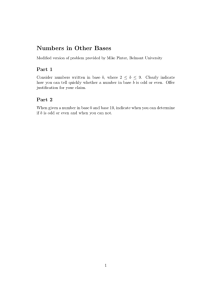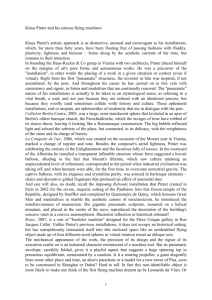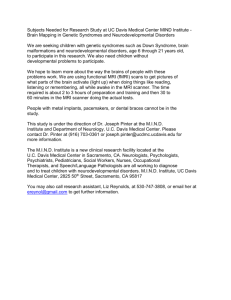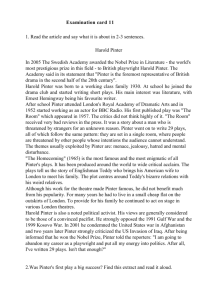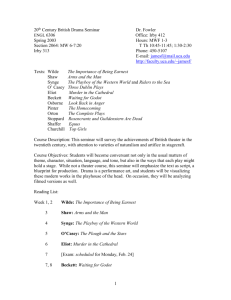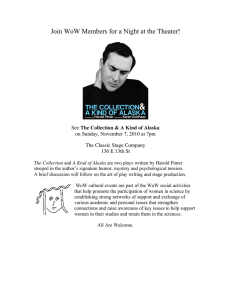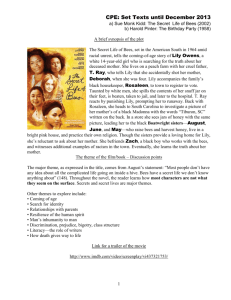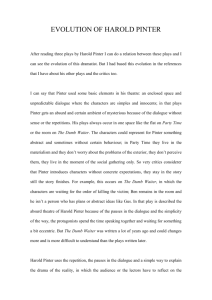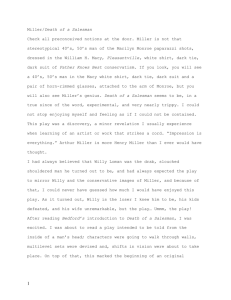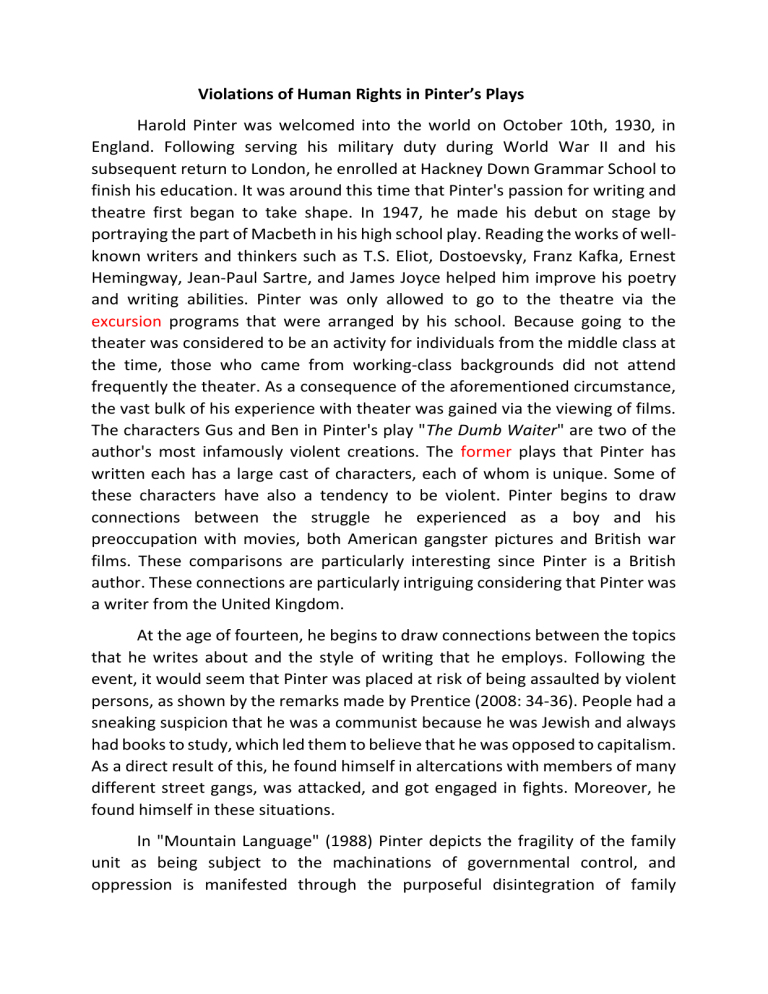
Violations of Human Rights in Pinter’s Plays Harold Pinter was welcomed into the world on October 10th, 1930, in England. Following serving his military duty during World War II and his subsequent return to London, he enrolled at Hackney Down Grammar School to finish his education. It was around this time that Pinter's passion for writing and theatre first began to take shape. In 1947, he made his debut on stage by portraying the part of Macbeth in his high school play. Reading the works of wellknown writers and thinkers such as T.S. Eliot, Dostoevsky, Franz Kafka, Ernest Hemingway, Jean-Paul Sartre, and James Joyce helped him improve his poetry and writing abilities. Pinter was only allowed to go to the theatre via the excursion programs that were arranged by his school. Because going to the theater was considered to be an activity for individuals from the middle class at the time, those who came from working-class backgrounds did not attend frequently the theater. As a consequence of the aforementioned circumstance, the vast bulk of his experience with theater was gained via the viewing of films. The characters Gus and Ben in Pinter's play "The Dumb Waiter" are two of the author's most infamously violent creations. The former plays that Pinter has written each has a large cast of characters, each of whom is unique. Some of these characters have also a tendency to be violent. Pinter begins to draw connections between the struggle he experienced as a boy and his preoccupation with movies, both American gangster pictures and British war films. These comparisons are particularly interesting since Pinter is a British author. These connections are particularly intriguing considering that Pinter was a writer from the United Kingdom. At the age of fourteen, he begins to draw connections between the topics that he writes about and the style of writing that he employs. Following the event, it would seem that Pinter was placed at risk of being assaulted by violent persons, as shown by the remarks made by Prentice (2008: 34-36). People had a sneaking suspicion that he was a communist because he was Jewish and always had books to study, which led them to believe that he was opposed to capitalism. As a direct result of this, he found himself in altercations with members of many different street gangs, was attacked, and got engaged in fights. Moreover, he found himself in these situations. In "Mountain Language" (1988) Pinter depicts the fragility of the family unit as being subject to the machinations of governmental control, and oppression is manifested through the purposeful disintegration of family formations. [citation]. The inhumanity that is being perpetrated may be seen in the way that families are being arbitrarily torn apart as a result of this practice. In the play "Mountain Language," in which this assault continues on the institution of the private family, a mother and son are paired with a husband and wife who have been cruelly ripped away from one another. Together, they attempt to speak with their estranged family members both of these families have gone through a terrible moment in their life. The opening scene of the play takes place in front of a state prison, where a line of women is waiting in the chilly weather to visit their husbands, fathers, or sons who are now being imprisoned there. The men in their lives have been arrested and are being kept there. As a direct result of this, the play depicts several dysfunctional families all at once before moving its attention to the destinies of the two synecdochical couples who are particularly important to the plot during the course of the play's final three acts. The tone of menace and helplessness that permeates the play is established by the violence with which these ladies are handled, which is symbolized by the bleeding hand of an elderly lady who has been bitten by a Dobermann. This sets the tone of danger and helplessness that pervades the drama for the whole of its duration. The tone of danger and helplessness that pervade the play is established by the brutality that is used to manage these females, which also creates the tone of the play overall. This hand that is bleeding for the whole of the play is a visual representation of the mood that permeates the play. We've been told that the guys who are now being held in custody are "enemies of the state" and that this designation is appropriate. The sole visible representation of the state at this place is that of the soldiers and guards who are employed at the institution. This is the only method that the state can be observed at this location.
